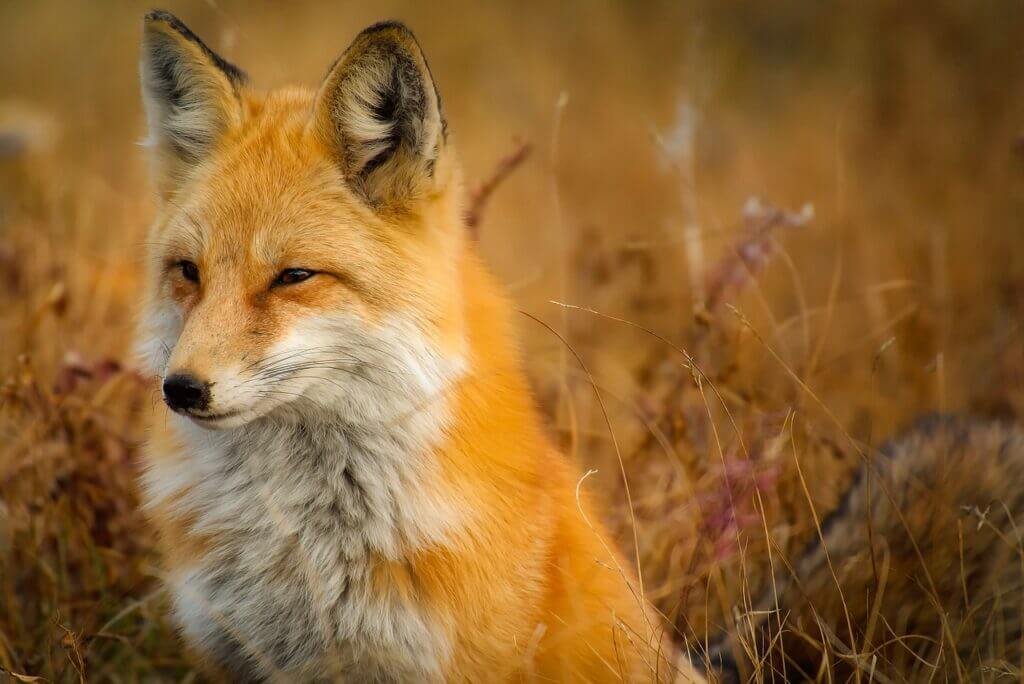Imagine sitting around a crackling campfire, surrounded by the sounds of nature and the sweet scent of the great outdoors. As you prepare a delicious meal under the starry night sky, there is one concern that lingers in the back of your mind – how do you protect your carefully prepared food from the curious and mischievous wildlife that might be lurking nearby? In this article, we will explore some simple yet effective ways to keep your meals safe and secure while enjoying the wonders of camping. So, grab your camping gear and join us on this adventure of preserving your food from wildlife in the great wilderness.

Choosing a campsite
When it comes to selecting a campsite, there are a few factors to consider in order to protect your food from wildlife. Firstly, it’s important to research the campsite regulations before your trip. Many campsites have specific rules in place for food storage and wildlife interactions. By familiarizing yourself with these regulations, you can ensure that you are following the necessary guidelines to keep both yourself and the wildlife safe.
In addition to adhering to campsite regulations, selecting a campsite away from wildlife habitats is crucial. Avoid setting up camp near areas that may attract wildlife, such as bodies of water, berry patches, or animal trails. By pitching your tent away from these habitats, you can minimize the chances of wildlife encounters and reduce the risk of them being attracted to your food.
Storing food properly
Proper food storage is essential when it comes to protecting your supplies from wildlife. There are several methods you can utilize to keep your food safe and secure:
Using bear canisters or bear-resistant containers
Bear canisters or bear-resistant containers are specifically designed to keep wildlife out of your food. These sturdy containers are typically made of hard plastic and come with a secure locking mechanism. By placing your food, toiletries, and other scented items inside these containers, you can ensure that they are protected from curious animals who may attempt to access them.
Hanging food in a bear bag
Another effective method of food storage is hanging your food in a bear bag. This involves suspending a bag containing your food from a high branch, away from the ground and any potential animal reach. It’s important to use a durable, odor-resistant bag and properly tie it to the branch, ensuring it is at least 10 feet off the ground and 4 feet away from the trunk of the tree. This method is particularly useful in areas where bear canisters are not required or available.
Storing food in a secured vehicle
If you have access to a vehicle, storing your food inside can be a viable option. Ensure that all doors and windows are securely closed to prevent any wildlife from entering. It’s important to note that this method may not be suitable for remote or backcountry camping where vehicles are not allowed or accessible.

Managing food odor
Wildlife often rely on their acute sense of smell to locate food sources, so managing food odors is crucial in minimizing wildlife interactions. Here are some tips to help reduce food odors:
Avoiding strong-smelling foods
When camping, it’s best to avoid bringing along strongly scented foods. Foods like bacon, garlic, and canned fish can attract wildlife from a distance. Opt for less pungent options or use spices and seasonings sparingly to minimize food odors.
Double-bagging food
To further reduce food odors, consider double-bagging your supplies. Place your food items in airtight containers or zipper-sealed bags, and then place those inside a second bag for an added layer of protection.
Using odor-proof bags or containers
Investing in odor-proof bags or containers can be highly effective in preventing food odors from escaping. These specialized bags or containers have built-in technologies that trap and block odors, making it harder for wildlife to detect the scent of food.
Cleaning up after meals
Properly cleaning up after meals is not only essential for maintaining a hygienic campsite but also for preventing wildlife from being attracted to food smells. Follow these steps to ensure you leave no trace and reduce the risk of wildlife encounters:
Washing dishes promptly
After each meal, wash your dishes promptly using biodegradable soap and hot water. Scrub away any traces of food and rinse thoroughly. It’s important to dispose of the dirty water away from your campsite, following the campsite regulations to prevent attracting wildlife.
Disposing of food waste properly
Food waste should never be left out in the open or buried in your campsite. Instead, pack it in plastic bags and store it securely with your other trash. Properly seal your trash bags and keep them in a bear-resistant container, your vehicle, or suspend them from a tree using the bear bag method.
Cleaning cooking utensils and equipment
In addition to dishwashing, it’s crucial to clean your cooking utensils and equipment thoroughly after each use. Remove any food residue and sanitize your cooking surfaces to eliminate lingering food smells that may attract wildlife.

Keeping a clean campsite
Maintaining a clean campsite is not only important for your safety but also for minimizing wildlife interactions. Here are some steps you can take to ensure your campsite remains free of food debris and smells:
Removing food particles and scraps
Regularly sweep your campsite to remove any food particles or scraps that may have fallen on the ground. Even small crumbs can attract wildlife, so be diligent in keeping your campsite clean.
Emptying and securing trash
As mentioned before, properly disposing of trash is crucial in keeping your campsite clean and wildlife-free. Empty your trash bags regularly and ensure they are securely stored to prevent wildlife from accessing them.
Avoiding leaving food unattended
Never leave food unattended, even for a short period. Whether you’re cooking, eating, or simply taking a break, always keep your food secured and within your sight. Remember, wildlife can be incredibly opportunistic, and it only takes a moment for them to snatch your unattended food.
Using deterrents
While proper food storage and hygiene are the primary methods of protecting your food from wildlife, using deterrents can provide an added layer of defense. Here are some techniques you can employ to deter wildlife:
Setting up tripwires or noise-making devices
Setting up tripwires or noise-making devices around your campsite can help alert you to any approaching wildlife. By creating obstacles or using bells, you can startle animals and potentially discourage them from coming closer to your camp.
Using motion-activated lights or alarms
Motion-activated lights or alarms can serve as effective deterrents against wildlife. These devices will detect movement and trigger a bright light or loud noise, intimidating any animals that come into their range.
Playing loud music or making loud noises
In certain situations, playing loud music or making loud noises can deter wildlife. Bears and other wildlife are typically afraid of loud and unfamiliar sounds. However, it’s important to remember to respect the tranquility of the outdoors and be mindful of noise pollution guidelines that may be in place.
Staying alert and observant
Being aware of your surroundings and practicing vigilance is key to avoiding wildlife encounters while camping. Here are some habits to cultivate for staying alert and observant:
Being aware of wildlife signs and tracks
Learn to recognize wildlife signs and tracks, as they can indicate the presence of animals nearby. Observe the ground for tracks, listen for rustling in the bushes, and keep an eye out for scat or other evidence of wildlife activity.
Listening for animal sounds
Animals often communicate through various sounds, so by actively listening, you can detect their presence even if you don’t see them. Familiarize yourself with the sounds of local wildlife and be attentive to any unusual or alarming noises.
Scanning the surroundings regularly
Regularly scanning your surroundings can help you identify any potential wildlife or changes in the environment. By being observant, you can react promptly and take necessary precautions to protect your food and yourself.
Educating and communicating with fellow campers
Camping with a group provides an opportunity to collectively protect your food from wildlife. By educating and communicating with your fellow campers, you can establish a safe and responsible camping environment. Here’s how you can effectively educate and communicate with others:
Sharing information about wildlife safety
Discuss wildlife safety measures with your camping group. Talk about the importance of proper food storage, hygiene practices, and avoiding wildlife interactions. By sharing this information, you can ensure that everyone is on the same page and understands the risks associated with wildlife encounters.
Establishing camp rules and guidelines
Establishing camp rules and guidelines can help create a structured and safe camping experience. Clearly communicate expectations regarding food storage, trash disposal, and overall camp cleanliness. Assign responsibilities to each member of the group to ensure that everyone actively participates in maintaining a wildlife-safe camp.
Keeping each other accountable
Hold each other accountable for following the established camp rules. Remind fellow campers to properly store their food, clean up after meals, and maintain a clean campsite. By keeping each other accountable, you can prevent any lapses in judgment and ensure a wildlife-free campsite.
Seeking advice from park rangers or experts
Park rangers and wildlife experts have extensive knowledge about the local wildlife and can provide valuable insights and advice. Don’t hesitate to approach them and seek their guidance on how to protect your food from wildlife. Here are some questions you can ask:
Asking for specific wildlife precautions
Inquire about any specific wildlife precautions that need to be taken in the area you plan to camp. Rangers can provide information on the behavior and habits of local wildlife, allowing you to tailor your food storage and other preventative measures accordingly.
Inquiring about recent wildlife activities
Ask park rangers about the recent wildlife activities in the area. By staying informed about any recent encounters or sightings, you can adjust your camping plans and take extra precautions, if necessary.
Requesting tips on wildlife-safe camping practices
Seek advice on wildlife-safe camping practices from park rangers or experts. They can offer tips and techniques that are specific to the region you’re camping in. Their expertise can help you navigate potential wildlife encounters and ensure a safe camping experience.
Respecting wildlife and their habitats
Finally, it’s essential to show respect for the wildlife and their habitats when camping. By being mindful and considerate, you can minimize your impact on the environment and reduce the likelihood of wildlife interactions. Here’s how you can respect wildlife and their habitats:
Observing animals from a safe distance
Observe wildlife from a safe distance and avoid getting too close. Give animals the space they need to thrive in their natural environment, and resist the temptation to approach or interact with them. This not only ensures your safety but also enables animals to behave naturally and undisturbed.
Avoiding feeding wildlife
Feeding wildlife may seem harmless, but it can disrupt their natural foraging patterns and cause dependency on human food. Refrain from feeding any wildlife, even if they approach your campsite out of curiosity. It’s in their best interest to find their own food sources.
Leaving natural food sources undisturbed
Avoid disturbing or damaging natural food sources that wildlife rely on. This includes refraining from picking berries, nuts, or any other food that may serve as a vital food source for animals. By leaving these natural resources untouched, you’re allowing wildlife to maintain their natural feeding habits.
In conclusion, protecting your food from wildlife while camping requires a proactive approach. By choosing a suitable campsite, properly storing food, managing food odors, cleaning up after meals, and maintaining a clean campsite, you can significantly reduce the chances of wildlife encounters. Deterrents and staying alert further enhance your safety, while educating fellow campers, seeking advice from experts, and respecting wildlife and their habitats contribute to a responsible camping experience. With these comprehensive measures in place, you can enjoy the beauty of the great outdoors while minimizing the risks associated with wildlife interactions.


